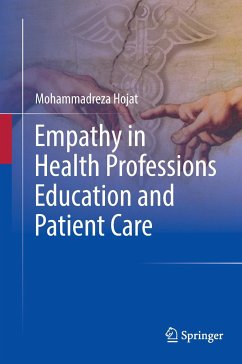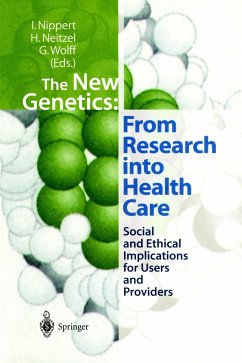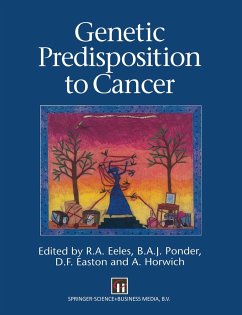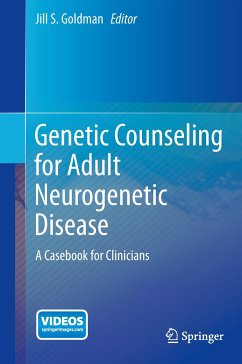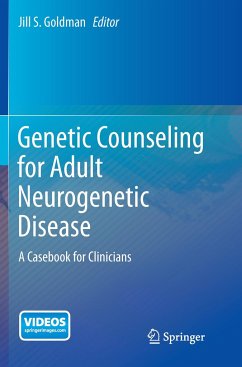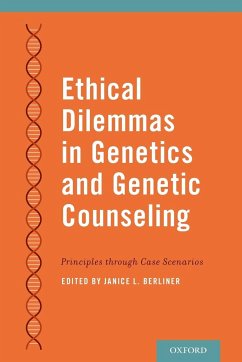
Facilitating the Genetic Counseling Process
Practice-Based Skills

PAYBACK Punkte
57 °P sammeln!
Now in its revised and updated second edition, this text provides a practical way of teaching genetic counseling helping skills. The contents can be used by genetic counselor educators and supervisors to facilitate student professional development, including gaining knowledge about basic helping skills; practicing using the skills specific to genetic counseling services; and understanding one's self as a professional in training. New topics include: the Reciprocal-Engagement Model (REM) of genetic counseling practice; research findings about genetic counselor professional development, values, ...
Now in its revised and updated second edition, this text provides a practical way of teaching genetic counseling helping skills. The contents can be used by genetic counselor educators and supervisors to facilitate student professional development, including gaining knowledge about basic helping skills; practicing using the skills specific to genetic counseling services; and understanding one's self as a professional in training. New topics include: the Reciprocal-Engagement Model (REM) of genetic counseling practice; research findings about genetic counselor professional development, values, compassion fatigue, burnout, and distress; expanded discussion of patient factors; and more attention to cultural issues. Every chapter contains updated literature, and both revised and new structured activities and written exercises.
Salient features of this second edition include:- An "active" and "cooperative" pedagogical approach, with numerous structured activities and exercises emphasizing student self-reflection and engagement with core content.- Inclusion of skills which comprise key elements within three competency domains for accreditation of genetic counseling training programs in North America: genetics expertise and analysis; interpersonal, psychosocial, and counseling skills and assessment; and professional development and practice.- Content grounded in a widely-cited, empirically-derived model of genetic counseling practice.- Inclusion of patient scenarios and roles for skills practice based on genetic counseling cases and reflecting recent developments in genetic knowledge, testing, and technologies.
Salient features of this second edition include:- An "active" and "cooperative" pedagogical approach, with numerous structured activities and exercises emphasizing student self-reflection and engagement with core content.- Inclusion of skills which comprise key elements within three competency domains for accreditation of genetic counseling training programs in North America: genetics expertise and analysis; interpersonal, psychosocial, and counseling skills and assessment; and professional development and practice.- Content grounded in a widely-cited, empirically-derived model of genetic counseling practice.- Inclusion of patient scenarios and roles for skills practice based on genetic counseling cases and reflecting recent developments in genetic knowledge, testing, and technologies.




